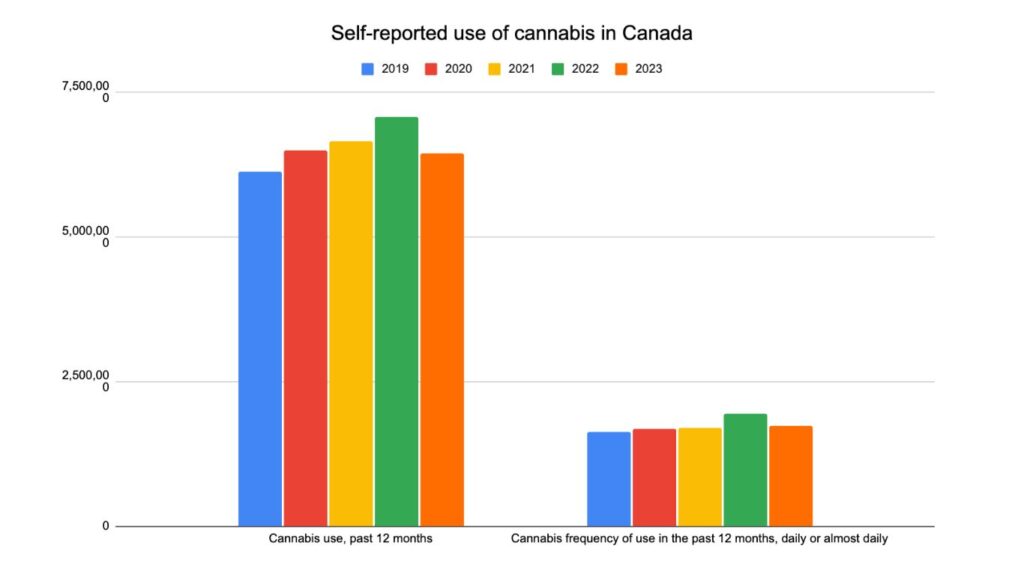
The population of those over 18 in Canada who reported using cannabis in the past 12 months and those who reported that they had used cannabis daily or almost daily in the past 12 months declined in 2023 after four years of annual growth.
The new figures come from surveys of Canadians provided by Statistics Canada, called the Canadian Community Health Survey. In addition to asking about cannabis consumption, the survey includes questions about alcohol, tobacco and e-cigarette use, as well as diet and other quality-of-life-related questions.
In 2019, the first year such data was provided, 6.1 million people in Canada over the age of 18 reported using cannabis in the last 12 months. This number increased to 6.5 million, 6.6 million, and 7.1 million in the subsequent years, before dropping to 6.4 million in 2023.
Those who reported using cannabis daily or almost daily in the past year showed a similar pattern. In 2019, 1.6 million reported using cannabis daily or nearly daily. This increased to 1.68 million, 1.69 million, and 1.9 million in the following years, before dropping to 1.7 million in 2023.
Cannabis sales in Canada also appear to reflect these self-reported figures, with sales beginning to cool after five years of year-over-year growth.
Other vice products showed declines in 2023 as well. Those who reported smoking tobacco products on a daily basis were down compared to 2020, as were those who reported heavy drinking. Heavy drinking refers to males who reported having five or more drinks, or women who reported having four or more drinks, on one occasion, at least once a month in the past year. Half of Canadian adults reported not drinking any alcohol in the past seven days in 2023.
Those who said they used e-cigarettes or vaping devices in the past 30 days, though, increased in 2023 compared to 2022 (the first year this data was collected).












